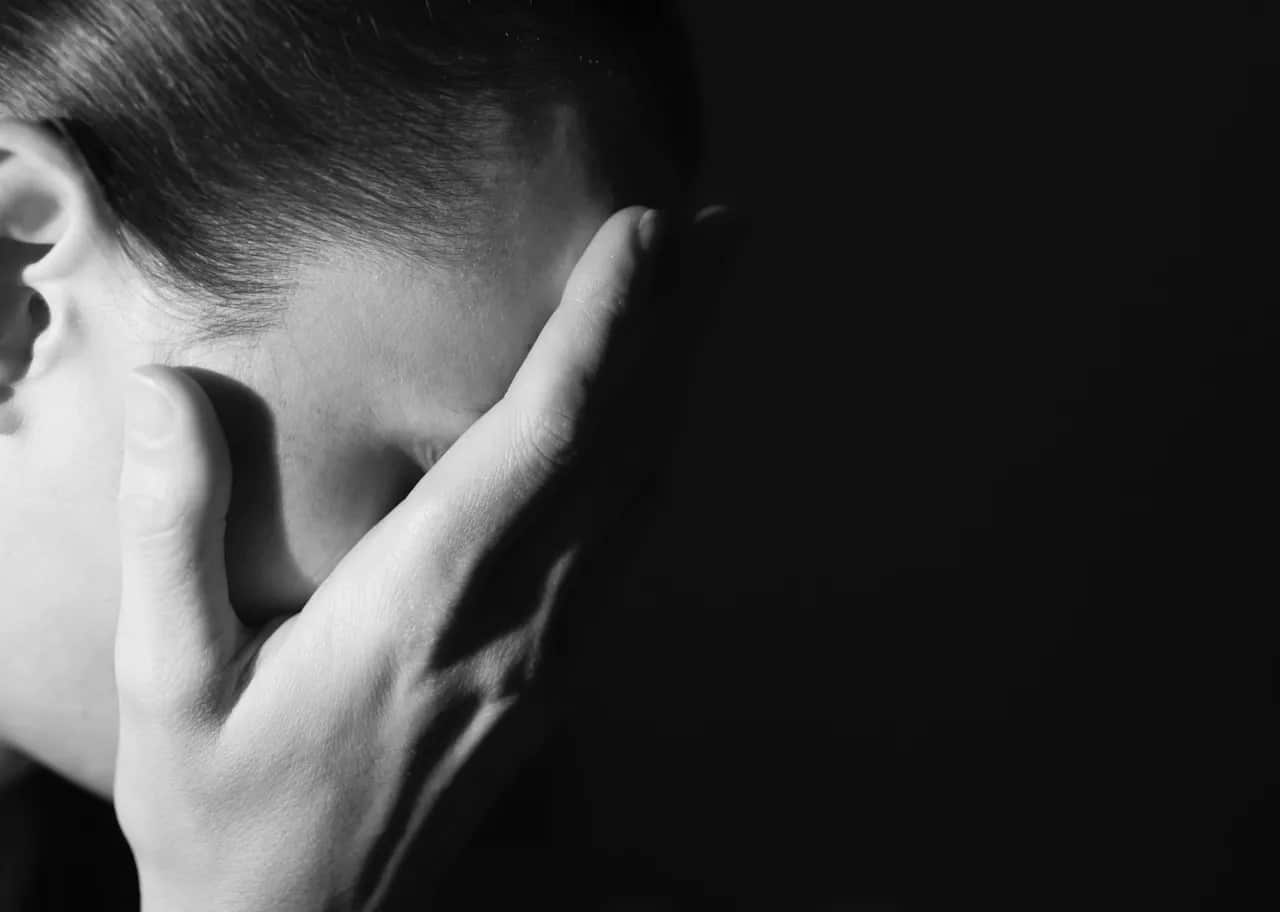Introduction
Addiction is a complex and multifaceted condition that affects millions of individuals worldwide. It is characterized by the compulsive use of substances despite harmful consequences, and it significantly impacts the physical, mental, social and spiritual aspects of a person’s life. The journey to recovery from addiction is equally complex, requiring a holistic and sustained effort. This blog delves into the nature of addiction as a disease, some the factors contributing to its development, and the comprehensive process of recovery.
The Disease
Biological Basis of Addiction
Addiction, whether to substances like alcohol and drugs or behaviors like gambling and internet use, is recognized by the medical community as a chronic disease. It alters brain function and structure, leading to harmful behaviors and an inability to control impulses.
The brain plays a central role in addiction. The mesolimbic dopamine system, often referred to as the brain’s reward pathway, is significantly involved. When a person engages in a pleasurable activity, such as eating or socializing, this pathway releases dopamine, a neurotransmitter that creates feelings of pleasure and reward. Addictive substances and behaviors hijack this system, causing an excessive release of dopamine. Over time, the brain adjusts to these surges by reducing dopamine production or receptor sensitivity, leading to tolerance (needing more of the substance to achieve the same effect) and withdrawal symptoms.
Genetic and Environmental Factors
Genetics contribute to the risk of developing addiction. Some studies indicate that 40-60% of susceptibility to addiction is attributable to genetic factors. Environmental influences, such as exposure to drugs, peer pressure, stress, and trauma, also play a crucial role. Individuals exposed to drugs or stressful environments at a young age are more likely to develop addictive behaviors.
Psychological and Social Aspects
Psychological factors like trauma, mental health disorders (e.g., depression, anxiety), and personality traits (e.g., impulsivity, sensation-seeking) can increase vulnerability to addiction. Social factors, including family dynamics, peer groups, and socioeconomic status, also influence the likelihood of substance use and addiction. Social isolation and lack of support can exacerbate addictive behaviors, while strong social connections can act as protective factors.
The Impact
Physical Health Consequences
Chronic substance use can lead to severe health problems. Alcohol addiction, for instance, can cause liver disease, cardiovascular problems, and neurological damage. Opioid addiction is associated with respiratory depression, increased risk of infectious diseases (due to needle sharing), and overdose. Stimulant abuse can result in cardiovascular issues, neurological damage, and psychological disturbances.
Psychological and Emotional Impact
Addiction often co-occurs with mental health disorders. It can exacerbate symptoms of depression, anxiety, and psychosis. The compulsive nature of addiction leads to feelings of helplessness, shame, and guilt, further entrenching the individual in a cycle of substance use and emotional distress.
Social and Economic Consequences
Addiction can erode personal relationships and disrupt family dynamics. It often leads to job loss, financial instability, and legal problems. The social stigma associated with addiction can result in isolation and discrimination, making it harder for individuals to seek help and reintegrate into society.
The Recovery Process
Acknowledging the Problem
The first step in the recovery process is acknowledging the presence of an addiction problem. Denial is a common barrier; individuals often underestimate the severity of their addiction or rationalize their behavior. Intervention from family, friends, or healthcare professionals can be crucial in helping individuals recognize the need for help.
Medical Detoxification
For many individuals, the initial phase of recovery involves medical detoxification (detox). This process involves clearing the body of the addictive substance and managing withdrawal symptoms under medical supervision. Detox is essential for substances that cause severe physical dependence, such as alcohol, opioids, and benzodiazepines. It is typically conducted in a clinical setting to ensure the individual’s safety and comfort.
Other Levels of Care
After a safe, medical detox is completed, many people still need further care. This care can range in intensity. The levels following detoxification are as follows:
Inpatient Rehab (IP or RTC): Also known as residential rehab, this comprehensive addiction treatment offers a highly structured and supportive environment for individuals to address drug and alcohol abuse. With round-the-clock supervision, inpatient rehab ensures a safe and triggers-free space, enabling individuals to focus wholly on recovery. The average duration of an inpatient rehab program is approximately 30 days but may vary based on individual progress and needs. Extended stays or transitioning to outpatient programs may be recommended for ongoing support and relapse prevention.
Partial Hospitalization Program (PHP): A Partial Hospitalization Program (PHP) is an intensive and structured level of care aimed at providing comprehensive treatment for individuals contending with addiction. PHP offers a high level of support and therapy, surpassing the offerings of traditional outpatient programs while allowing individuals to reside at home or in a stable living environment. This approach is particularly beneficial for individuals who need more support than an Intensive Outpatient Program or traditional outpatient care can provide but do not require round-the-clock supervision in a residential setting.
Intensive Outpatient Program (IOP): An Intensive Outpatient Program (IOP) stands as a structured addiction treatment that delivers elevated care and support, exceeding the standards of a traditional outpatient program, yet granting them the flexibility to reside at home or in a sober living environment.
Individuals participate in counseling and therapy sessions for multiple hours on weekdays, typically spanning three to five days per week. The exact schedule is adaptable and dependent on the program and individual needs. These sessions take place in clinics, treatment centers, or other designated facilities.
Outpatient Program (OP): Outpatient programs empower guests to cultivate healthy habits and coping mechanisms through individual therapeutic sessions, establishing a robust support network for life after treatment. Outpatient treatment often provides the same range of services an individual would get at other levels of care. These services may include trauma therapy, cognitive behavioral therapy (CBT), dialectical behavioral therapy (DBT), family and couples counseling, holistic healing methods, job and educational training, guidance on 12-step programs, and relapse prevention plans. Outpatient therapy is generally once or twice a week for an hour each time which again, grants the flexibility to reside at home or in a sober living environment.
Behavioral Therapies
Behavioral therapies are a cornerstone of addiction treatment. These therapies help individuals understand the underlying causes of their addiction, develop coping mechanisms, and change harmful behaviors. Common types of behavioral therapies include:
Equine-Assisted Therapy (EAT): Equine therapy, also referred to as Equine-Assisted Therapy (EAT), represents a therapeutic intervention encompassing equine activities or an equine environment, tailored to facilitate physical, occupational, and emotional advancement in individuals contending with a spectrum of conditions, including but not limited to ADD, anxiety, depression, trauma, PTSD, dual diagnosis, co-occurring disorder, behavioral health issues, alcohol addiction, drug addiction and other abuse-related challenges.
This approach to Equine Therapy aims to engender numerous benefits, enabling individuals to foster confidence, enhance self-efficacy, refine communication skills, cultivate trust, gain perspective, advance social aptitude, exercise impulse control, and comprehend personal boundaries. Central to the effectiveness of Equine Therapy is the inherent resemblance between equine and human behaviors, particularly in terms of social and responsive behaviors. This parallelism facilitates a profound and symbiotic connection between the guests and the horses, engendering a conducive environment for therapeutic engagement and interaction. Such an immersive and empathetic rapport with the horses lays the groundwork for profound and enduring therapeutic outcomes, thereby accentuating the potential for transformative healing experiences within the context of Equine Therapy.
Psychodrama and Experiential Therapy: This technique encompasses the use of expressive tools and activities, such as role-playing, props, arts and crafts, music, animal care, guided imagery, and various forms of recreation to reenact and re-experience emotional situations from past and recent relationships. By leveraging the physical world, it aims to reveal a person’s emotional universe, thereby altering mental limitations and perspectives, ultimately leading to significant improvements in individuals’ lives. For further insight, visit www.experientialprofessionals.com.
Accelerated Resolution Therapy (ART): ART is a therapeutic approach designed to reprogram the way distressing memories and images are stored in the brain, thereby alleviating strong physical and emotional reactions. This modality has demonstrated effectiveness in treating conditions such as PTSD, depression, grief, anxiety, and addiction. More information about ART can be found at www.acceleratedresolutiontherapy.com.
Rapid Resolution Therapy (RRT): Described as a fast and effective solution for life’s challenges, RRT is a pragmatic approach informed by science and philosophy that shifts the mind’s processing of information to bring about natural and automatic improvements in thoughts, feelings, and behaviors. RRT is particularly effective in addressing anxiety, panic disorder, insomnia, grief, trauma, and other related conditions. Additional information about RRT is available at www.rapidresolutiontherapy.com.
Eye Movement Desensitization and Reprocessing (EMDR):EMDR is a psychotherapeutic technique that facilitates the healing of symptoms and emotional distress arising from disturbing life experiences. By demonstrating that the mind can heal from psychological trauma akin to physical trauma, EMDR helps individuals address and overcome the impact of distressing events, enabling their natural progression toward mental health. Learn more about EMDR at www.emdr.com.
Cognitive-Behavioral Therapy (CBT): Focuses on identifying and changing negative thought patterns and behaviors.
Dialectical Behavior Therapy (DBT): Combines CBT with mindfulness techniques to help individuals manage emotions and stress.
Motivational Interviewing (MI): Enhances motivation to change by exploring and resolving ambivalence.
Medication-Assisted Treatment (MAT)
For certain addictions, medications can be an effective part of treatment. MAT combines medications with behavioral therapies to address the physical and psychological aspects of addiction. Examples include:
Vivitrol and Sublocade: Used for opioid addiction to reduce cravings and withdrawal symptoms and block euphoric effects of opioids and alcohol.
Naltrexone: Blocks the euphoric effects of opioids and alcohol.
Acamprosate: Helps reduce cravings and maintain abstinence in alcohol dependence.
Support Groups and Peer Support
Support groups, such as Alcoholics Anonymous (AA) and Narcotics Anonymous (NA), and other 12 step oriented programs provide a community of individuals who share similar experiences. These groups offer emotional support, encouragement, and practical advice. Peer support is an invaluable resource for many in recovery, fostering a sense of belonging and accountability.
Holistic Approaches
Holistic approaches address the individual’s overall well-being, including physical, emotional, and spiritual health. Practices such as yoga, meditation, breath work, and art therapy can complement traditional treatments, helping individuals manage stress, improve self-awareness, and enhance their quality of life.
Relapse Prevention and Long-Term Maintenance
Relapse is a common part of the recovery journey and should not be viewed as a failure. It is essential to develop a relapse prevention plan that includes:
Identifying Triggers: Recognizing situations, people, or emotions that may lead to substance use.
Coping Strategies: Developing healthy ways to manage stress, cravings, and negative emotions.
Continuing Therapy: Engaging in ongoing therapy or counseling to address underlying issues and reinforce coping skills.
Building a Support Network: Maintaining connections with supportive friends, family, and peer groups.
The Role of Family
Family Involvement
Family therapy can help address dysfunctional dynamics and improve communication and support within the family unit. Educating family members about addiction and recovery can also reduce stigma and promote a more supportive environment.
Community Resources
Communities can offer various resources to support individuals in recovery, including job training programs, housing assistance, and recreational activities. Community organizations and faith-based groups often provide valuable support and a sense of purpose.
Reducing Stigma
Reducing the stigma associated with addiction is crucial for encouraging individuals to seek help. Public education campaigns, advocacy efforts, and open dialogues about addiction can help change perceptions and foster a more compassionate and supportive society.
Success Stories:
Sharing success stories can inspire and motivate others on their path to recovery. These stories highlight the resilience and determination of individuals who have overcome addiction and built fulfilling lives. They also underscore the importance of support, perseverance, and the belief that recovery is possible.
Conclusion
Addiction is a pervasive and challenging disease that affects individuals and communities worldwide. Understanding its complex nature and the multifaceted process of recovery is essential for effectively addressing this issue. Recovery is a lifelong journey that requires a comprehensive approach, including medical treatment, behavioral therapies, support networks, and holistic practices. By fostering a supportive and stigma-free environment, we can help individuals reclaim their lives and achieve lasting recovery.





